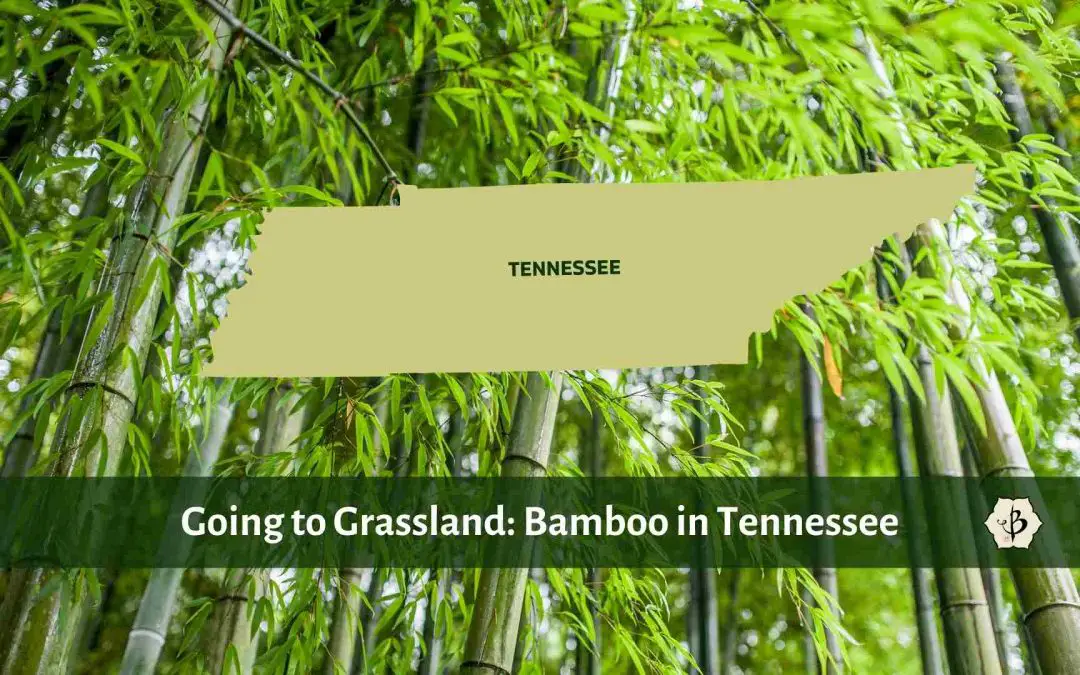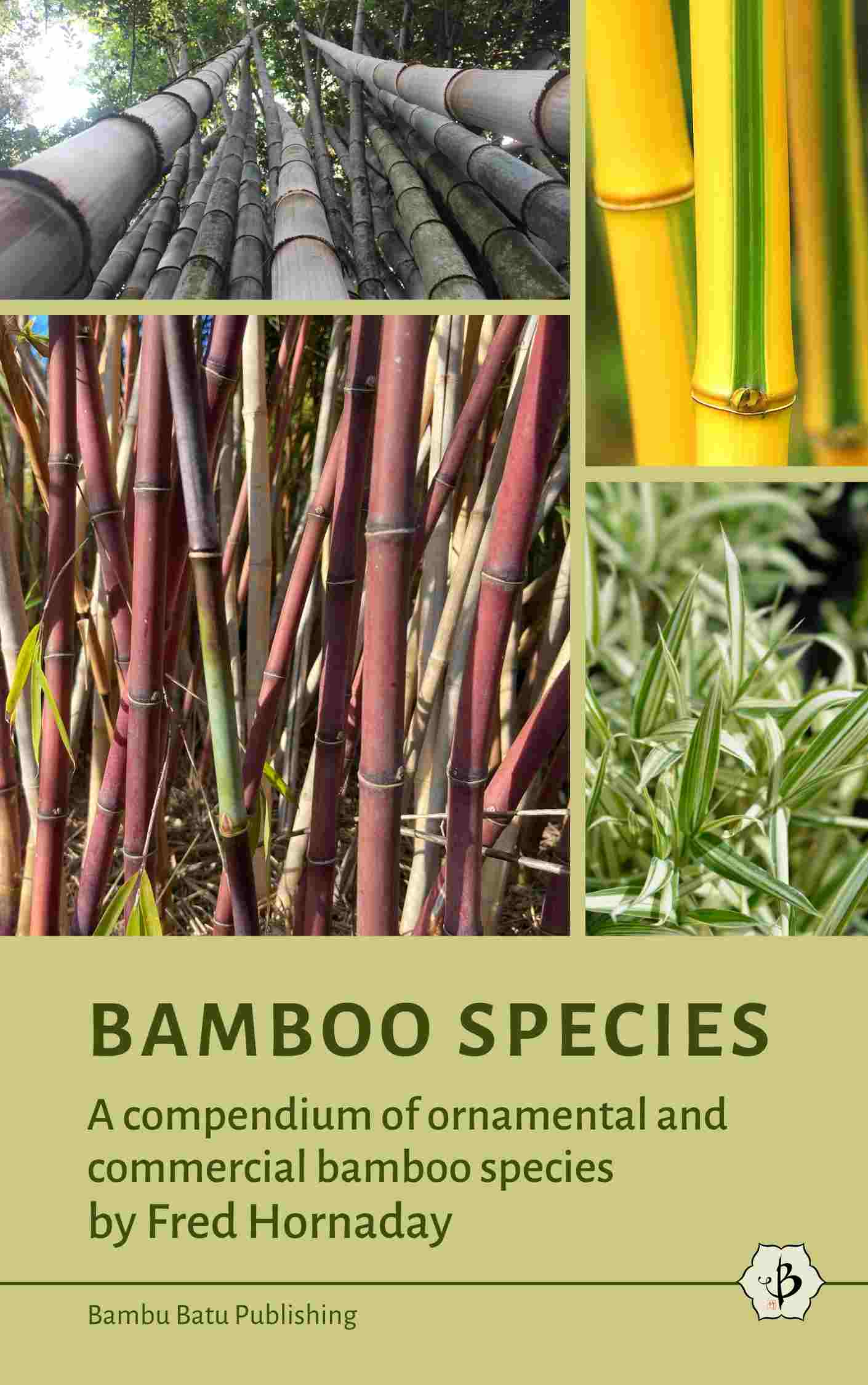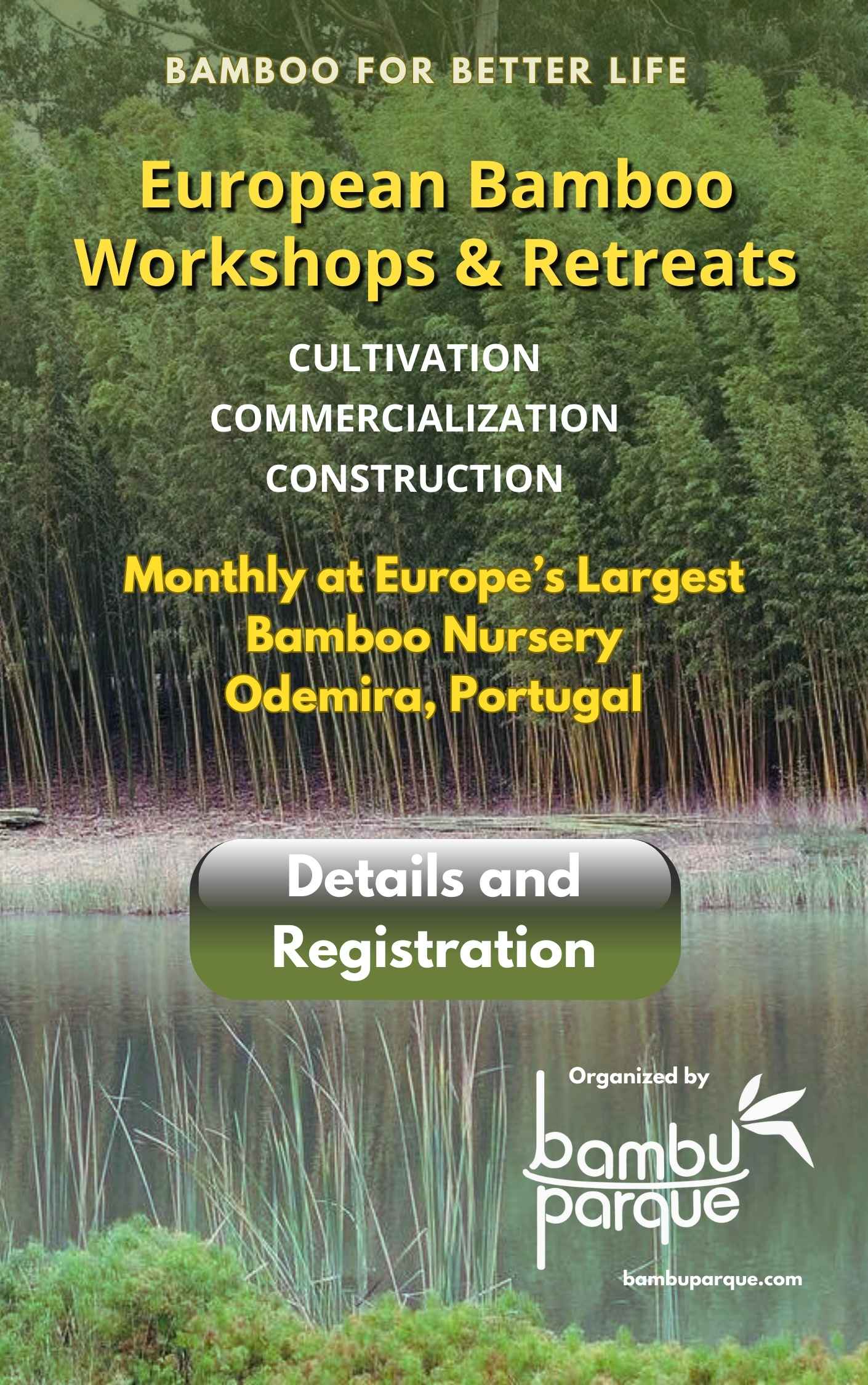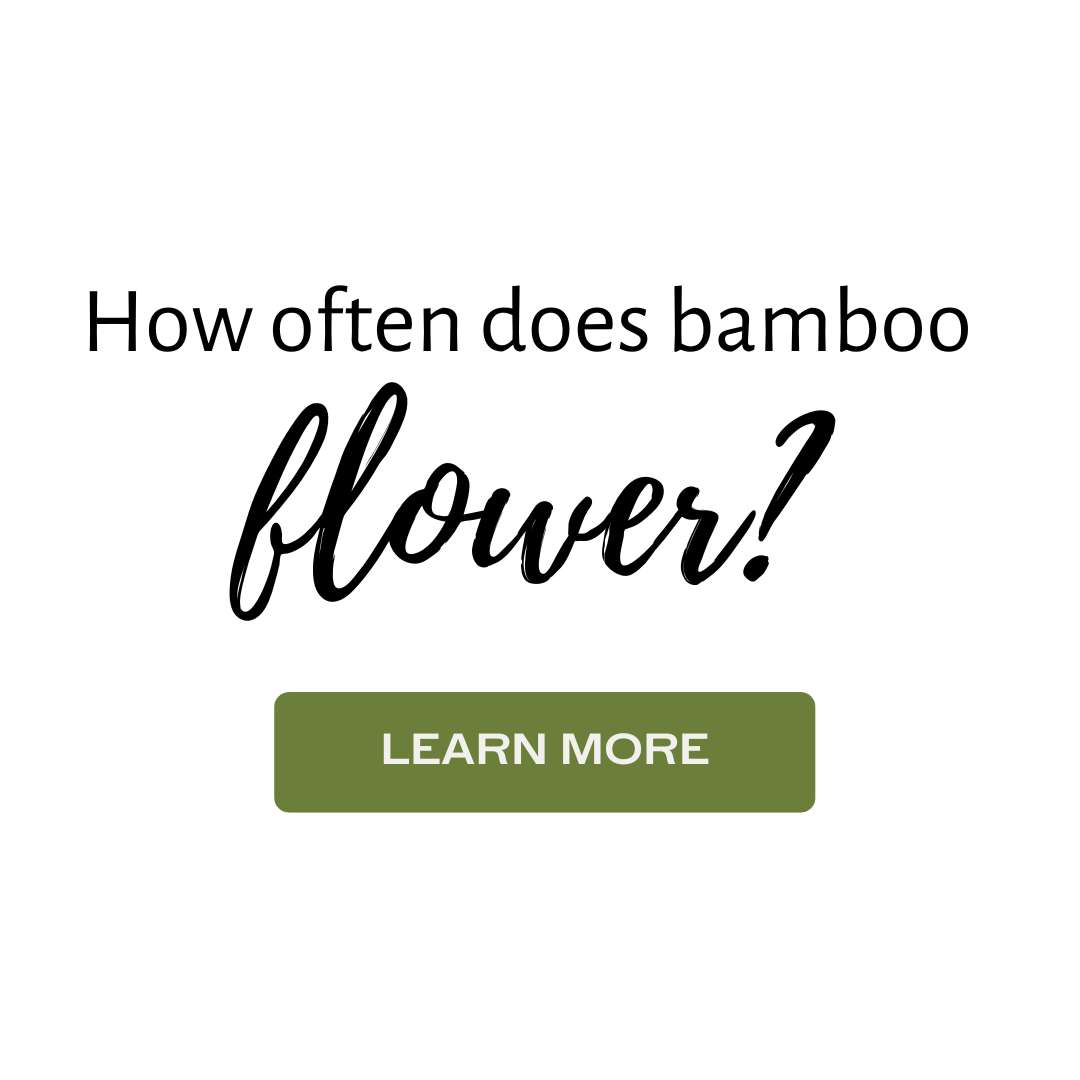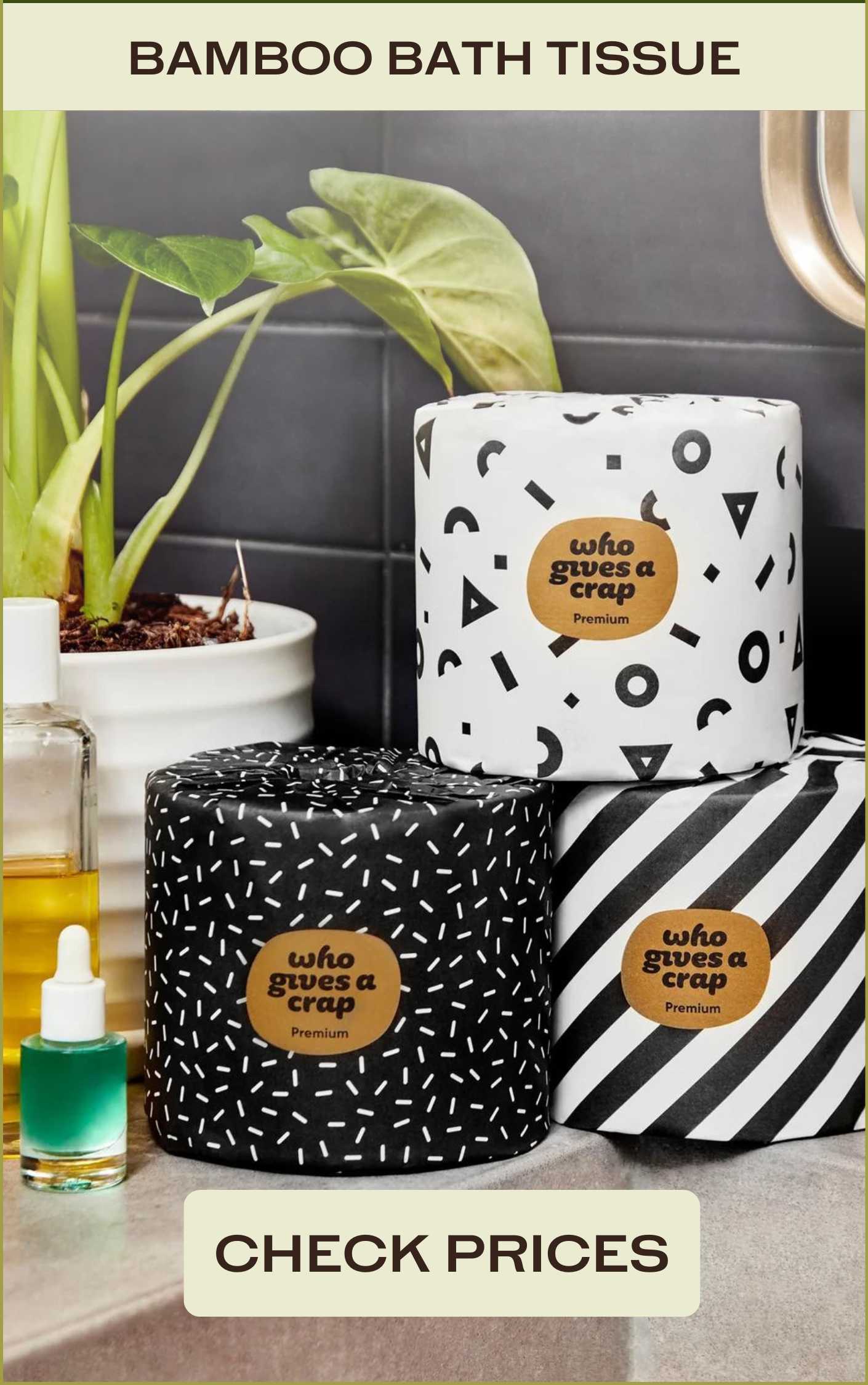The Country Music Hall of Fame, Elvis Presley’s Graceland, and Jack Daniel’s whiskey are all iconic symbols of Tennessee. The “Volunteer State” is less famous for its bamboo, but Tennessee does have some of the best bamboo groves in the country. The state’s motto is “Agriculture and Commerce”, so it’s only natural that Tennessee would be putting bamboo to good use.
With a mix of humid subtropical and mountain temperate climates, Tennessee has ideal conditions for growing a great variety of bamboo species. Three species of Arundinaria, or River Cane, are native to Tennessee, but farmers have introduced many more Asian species with excellent results. The state has a handful of bamboo nurseries and one of the largest bamboo research farms in the country.
Tennessee conditions for bamboo
With more than 1,400 species and cultivars, there’s a bamboo variety for nearly every climate. People love to grow bamboo in Florida, and even Canadians can have success with these woody grasses. But the kinds of bamboo that thrive around the Gulf of Mexico are quite different from those that will survive north of the border. The Deep South, though, has just the right mix of warmth and humidity to suit a vast range of bamboo species.
Tennessee is teeming with super diverse deciduous forests, like those found in the Great Smoky Mountains National Park, covering more than half of the state. Farmland comprises another 40% of the area. Tobacco and cotton continue to be major crops here, trailing close behind corn and soybeans. Rich soil and a favorable climate are able to support a wealth of forestry and agriculture.
Bamboo species in Tennesee
There are only three species of bamboo native to the contiguous United States. They all belong to the genus Arundinaria and their distribution is limited to the Deep South, east of the Mississippi and south of the Ohio River Valley. These indigenous bamboo varieties were once very widespread and important to Native American cultures. But when the Europeans arrived, they began to systematically eradicate these bamboo groves in order to prepare the land for agriculture, primarily cotton and tobacco.
Since then, gardeners and researchers have brought countless varieties of bamboo into Tennessee and the surrounding areas. The most prevalent of these belong to the genus Phyllostachys. Primarily native to China and Taiwan, Phyllostachys includes about 50 species of temperate, cold-hardy bamboo that can vary in size from massive to miniature.
One of the largest and most successful species of bamboo in Tennessee is Phyllostachys nigra ‘Henon’, also called Giant Gray Bamboo. This timber variety commonly grows 50 or 60 feet tall, with 4-5 inch thick culms. It’s similar in size and appearance to Moso and Vivax. But Moso, although extremely successful in China, is difficult to propagate here. And Vivax has thinner culm walls, making it less useful for building and construction uses.
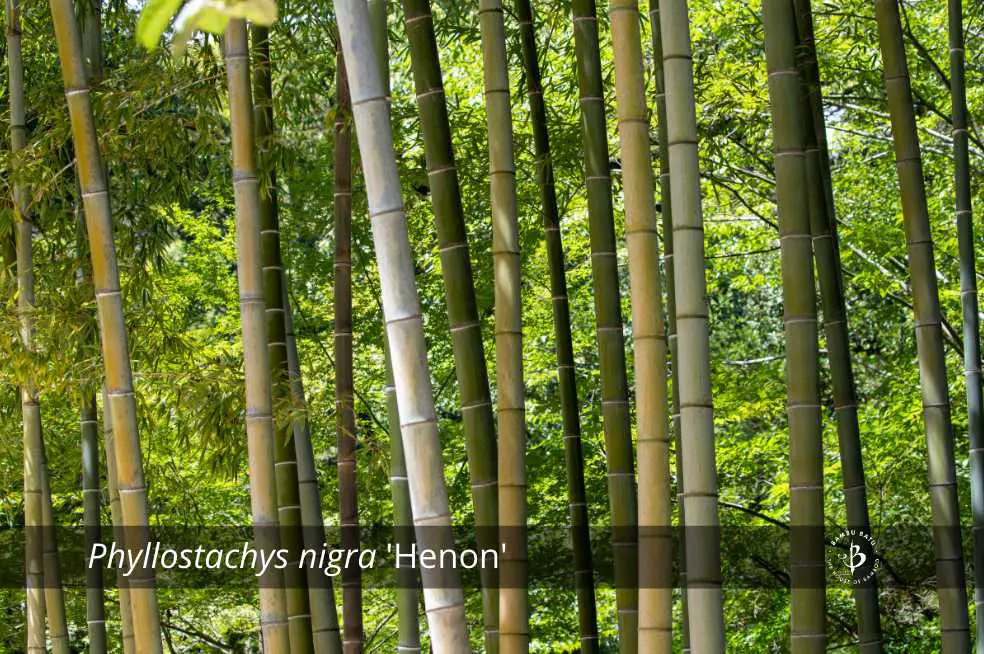
Truly tropical bamboo varieties will not do well in Tennessee, on account of the cold winters. Most species of Dendrocalamus, Gigantochloa, and Schizostachyum, for example, cannot tolerate the frost. Many subtropical, clumping species of the genus Bambusa will do quite well here though. Another formidable timber variety, Bambusa oldhamii, for example, is especially popular in the Southeast.
Most other clumping bamboo, which tends to be tropical, will find the winters in Tennessee too cold. And the cold-hardiest clumpers, from the genus Fargesia, will not do well in the summer heat and humidity of the South. South American bamboo, of the genus Chusquea, is uniquely suitable if you’re looking for a clumping bamboo that can handle freezing temperatures as well as summer heatwaves.
Still, there are hundreds of temperate species of runner bamboo that will flourish in the Southern habitat. Varieties of Pseudosasa and Semiarundiaria include some popular ornamentals. There is also a wide variety of smaller, dwarf bamboos, belonging to the Pleioblastus, Sasa and Sasaella genera.
Bamboo farms and nurseries in Tennessee
If you’re in Tennessee and looking for a place to view or shop for bamboo, you have plenty of options.
The Earth Advocates Research Farm: American bamboo guru, Adam Turtle, has been studying, cultivating and promoting bamboo for decades. He claims to have an astonishing 350 species and cultivars on his 30-or-so acres in Summertown, Tennessee, about an hour south of Nashville.
A self-proclaimed Beatnik, too old to identify as a Hippie, Turtle got into subsistence farming and permaculture back in the sixties. In 1991, he established the Earth Advocates Research Farm to continue exploring concepts like permaculture and share his knowledge with others. In addition to his amazing collection of bamboo, he also grows a wide array of edible crops, berries, gourds, and so on.
The Middle Tennessee Bamboo Farm: Located at 3808 April Lane, in Murfreesboro, just south of Nashville, MTBF has a reputation as the best specialty bamboo nursery in the state. They specialize in temperate bamboo, big and small, and living privacy screens. Call ahead for an appointment in order to ensure the best level of service and personal attention. (615) 406-8049
The Almaville Bamboo Company: Also south of Nashville, at 7361 Almaville Rd, in Arrington, Almaville Bamboo Co. is open daily to the public. Check their website for hours of operation. They offer a healthy selection of tall bamboo specimens for screening.
Botanical Gardens: In the mood for a leisurely stroll through an orderly and diverse collection of verdant delights? The botanical gardens at Cheekwood and Knoxville both have wonderful bamboo groves worth visiting.
As far as commercial bamboo farming, there’s nothing of any significant scale taking place in Tennessee at this time (spring 2022). But that could change in the near future, as interest in bamboo as a cash crop continues to gain steam.
Learn more
If you are fascinated by bamboo and want to know all about it, then you’ve come to the right place. Take a look at some of these other articles to satisfy your horticultural curiosity.

